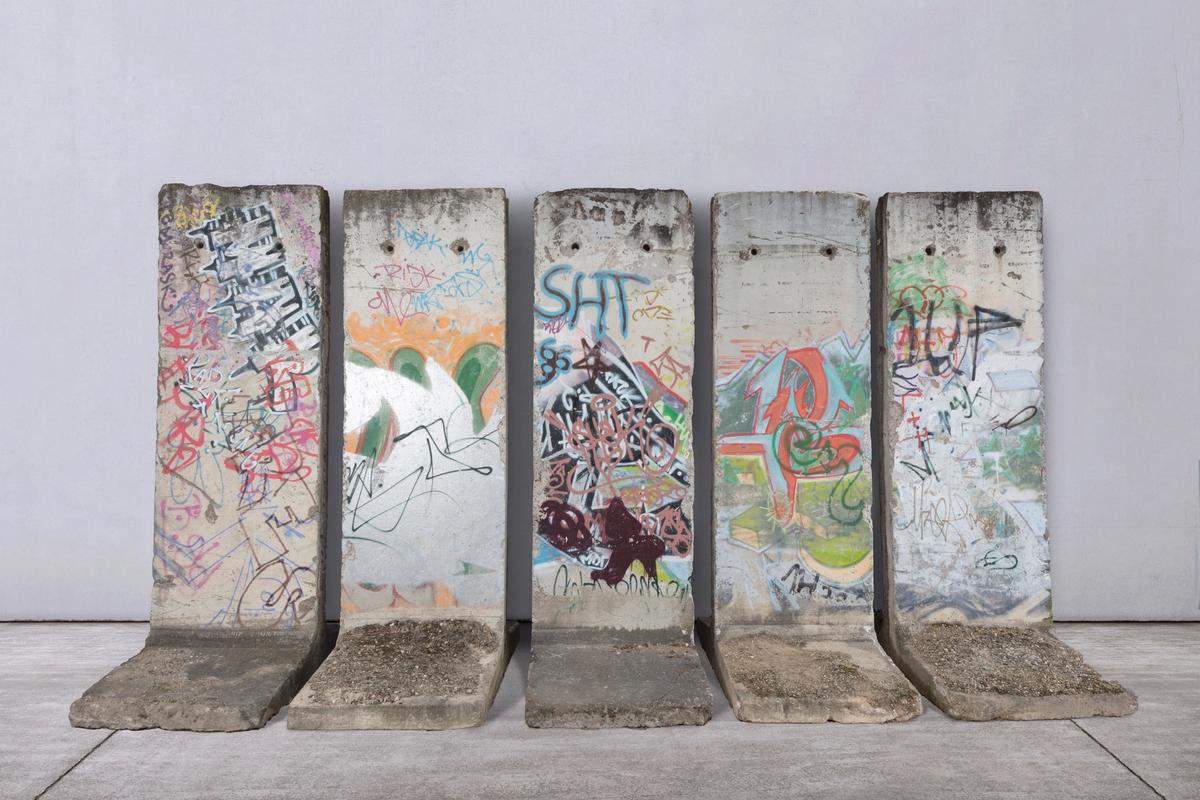The 65th Brafa Art Fair next year will have a haunting centrepiece—five monolithic graffitied segments of the Berlin Wall which will be auctioned off for charity during the Brussels fair from 26 January to 2 February.
This is no standard auction, from the logistics involved in transporting this outsized concrete quintet from Berlin to Brussels, to the fact it is being sold at all. While there is no reserve price, Brafa chairman Harold t’Kint de Roodenbeke says the news has had buyers tripping over themselves to register their interest. Proceeds from the auction will be split among five charities, with causes ranging from cancer research to heritage.
He estimates the pieces date from the 1970s: five hulking T-shaped pieces of concrete that stand nearly 4m tall and weigh 3.6 tons each. While it’s impossible to pinpoint the exact street corner over which they towered, they formed part of the Hinterlandmauer, the 68km stretch of wall separating East Berlin from the no-man’s-land.
In anticipation of the 30thanniversary of the fall of the Berlin Wall this Saturday, 9 November, Brafa bought the segments in 2018 from a private company which had in turn purchased them from the East German Army. At one point they were used to store building materials. Subsequently, artists were commissioned to reclaim what they represented by painting on them, the layers of tags and colour speaking to decades of civic engagement.
“I don't know if beautiful is the right word,” says t’Kint de Roodenbeke, “but they are moving.” Their weight—emotional, historical, spiritual even—is inescapable.
As commercial art fairs go, Brafa—which operates as a non-profit—is an outlier. The idea for this initiative came to t’Kint de Roodenbeke during a holiday in Nova Scotia, where, in the middle of a tiny fishing village, he found a piece of the Berlin Wall. It was, he says, improbable, the sort of encounter that the people of East Berlin wanted when the wall came down: pieces of what had happened to them bearing witness the world over.
To t’Kint de Roodenbeke’s mind, the auction says it plainly: “This kind of policy [of segregation] was a failure, and will always be a failure.”


